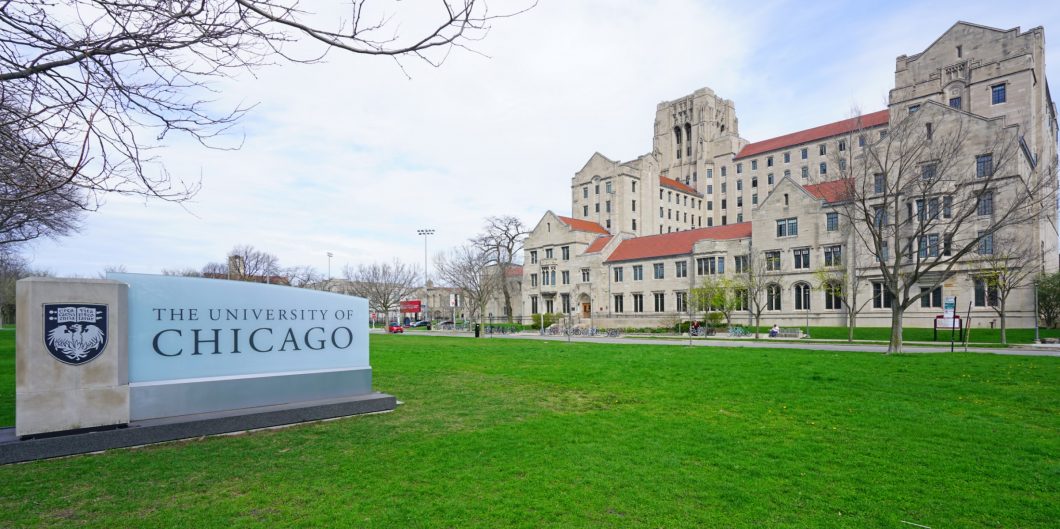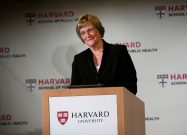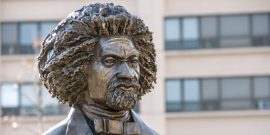The condemnations of illiberal democracy are frequently shallow because they tend to assume rather than show the coherence of “liberal democracy.”
Academic Freedom in Chicagoland
The University of Chicago and Northwestern University are both ranked among the top ten national colleges by U.S. News and World Report. Their campuses are in the same state, less than 25 miles apart. But they are at the opposite polarities of the great issue that confronts institutions of higher education today: whether they will remain academies committed to the open exchange of ideas or whether they will prioritize a new secular sacred—the diversity ideology—that will suppress inconvenient debates and sustain a leftist orthodoxy.
Two incidents last year illustrate the educational distance between them. In the first, a University of Chicago professor in Geophysics went on YouTube to criticize certain programs that promote “diversity and inclusion,” including some in his own Department. Students then demanded that he be removed from various official responsibilities at the Department. The University of Chicago refused to do so and declined to criticize his views. Instead, it defended his academic freedom, including the freedom to criticize the practices of his own university.
Last month at Northwestern, the university at which I teach, the story was very different. There Joseph Epstein, an emeritus lecturer at the university, wrote an op-ed in the Wall Street Journal, criticizing the practice of using the honorific doctor by non-medical doctors. Exhibit A of this criticism was Jill Biden who apparently insists on being called Dr. Biden, although, as my PhD economist wife says of herself, Biden is not a “doctor who helps people,” but instead is an English teacher at a community college. Epstein also suggested that honorary doctorates were often not deserved and were regularly chosen to reflect racial and gender balance rather than merit.
The reaction from Northwestern was over the top. The English Department said that Epstein’s essay cast an “unmerited aspersion” on Biden’s doctoral credentials and expertise. The Chair helpfully provided context for its attack on Epstein, saying that Epstein had made people “livid” for a long time with his writing. At the risk of making more people in the English Department livid, I would note that it is striking that the English Department cannot write a short statement without pleonasm. Aspersion is defined by Webster “as a false or misleading charge.” Aspersions cannot be merited.
The University itself weighed in, stating, that “Northwestern is firmly committed to equity, diversity and inclusion, and strongly disagrees with Mr. Epstein’s misogynistic views.” The statement from the university also contained boilerplate, saying it “firmly supported” academic freedom. But at the same time, the English Department dropped Epstein from its website as an emeritus lecturer although this honorary title is, according to Northwestern’s own faculty handbook, granted by the Board of Trustees. Professors who wrote the Provost to complain of this violation of academic freedom have not even received the courtesy of a reply.
These disparate reactions to challenges to some element of academic orthodoxy show the difference between a university committed to epistemic liberalism and one that is committed to defending a political orthodoxy. The University of Chicago’s action encourages intellectual debate, even about issues that many professors hold sacred. Northwestern’s reaction has a chilling effect. Indeed, the English Department’s airbrushing of Epstein from its website in reaction to his views has a family resemblance to totalitarian societies where people become non-persons if they voice critiques of the wrong kind. That the university did so while proclaiming its commitment to academic freedom has a peculiarly Orwellian touch.
With the rise of the secular sacred values of inclusion and diversity that dominate campuses, a university’s commitment to epistemic liberalism needs to be made explicit so that it will take precedence.
Unfortunately, official actions that punish the unorthodox and chill others are far too common at universities today. There are strong forces at work to subordinate free expression and open inquiry to the values that are held to be more sacred, principally those that go by the name “diversity and inclusion” and that now have been updated to include “antiracism”— a term of art that is far from a commitment to nondiscrimination.
Three pressures are particularly powerful. One is illiberal faculty. While university professors have been mostly left-wing for decades, they nevertheless had a strong commitment to free speech libertarianism. That was frequently part of the left-liberalism of their youth. But today many younger faculty members see the whole world through the prism of race or gender, often with methodologies that reject enlightenment liberalism.
Second and more importantly, university bureaucrats largely run the modern university. Their mission often does not include protecting free expression or inquiry. Indeed, the scores of bureaucrats that enforce “diversity and inclusion” are often all too happy to maximize the objectives of this ideology at the expense of academic freedom. Northwestern is no doubt a typical university. Here faculty members receive admonitions to follow community standards on diversity and inclusion without, as my colleagues note, any mention of free expression or academic engagement.
Third, universities frequently cater to students as consumers. Most students do not want to suppress free speech, but the most vocal activists do, and they are conveniently treated by university bureaucrats as representatives of the students. Administrators can then justify illiberal actions as preemptive of student unrest.
The University of Chicago can better withstand these pressures because it formally adopted a precommitment to academic freedom and free inquiry—the Chicago Principles—which are well worth reading in full. These principles state in part:
Of course, the ideas of different members of the University community will often and quite naturally conflict. But it is not the proper role of the University to attempt to shield individuals from ideas and opinions they find unwelcome, disagreeable, or even deeply offensive. Although the University greatly values civility, and although all members of the University community share in the responsibility for maintaining a climate of mutual respect, concerns about civility and mutual respect can never be used as a justification for closing off discussion of ideas, however offensive or disagreeable those ideas may be to some members of our community.
The principles include a requirement that the university defend the right of free expression even when unpopular. The University of Chicago acted on this commitment in defending the professor in its Geophysics Department. Northwestern has no such commitment and that absence made it easier for the university to treat Epstein the way it did.
It might be thought that statements like the Chicago principles are unnecessary because a university can be truly great only if it creates an atmosphere of openness to ideas and tolerance for dissent. And, indeed, at some period of history, such epistemic liberalism was the norm for our elite universities. But with the rise of the secular sacred values of inclusion and diversity that dominate campuses, this commitment needs to be made explicit so that it will take precedence. Such a statement emboldens the heterodox and ties the hands of administrators who can tell activists who want to cancel others that they are very sorry, but they cannot do anything.
Thus, the best way for universities to preserve epistemic liberalism is to adopt the Chicago principles. Some colleagues of mine at Northwestern are considering trying to get our university to do so. I will join the effort but am not wholly optimistic. Many universities, including my own, may consciously decide on a course of product differentiation, embracing their role as institutions that subordinate truth-seeking to these new values. In this, they may be encouraged by our corporations that increasingly want graduates who not only are smart but will fall into whatever political line the companies take the better to keep a step ahead of wokeness. Not for the first time, educational institutions may face a tension between two of the core legacies of enlightenment liberalism—the free market and freedom of expression.
Editor’s Note: This essay has been updated to specify that it was the Northwestern English Department, rather than the University itself, that removed Joseph Epstein from its website.



